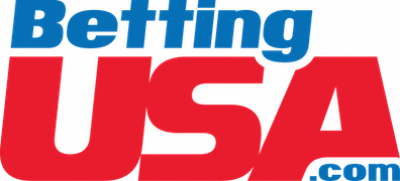Data Highlights Opportunity for States to Shore Up Sports Betting Tax Revenue Shortfalls
MADISON, Wis., March 29, 2022 (Newswire.com) - Analysts at BettingUSA.com make a case for taxing promotional spending by online gambling operators separate from revenue and earmarking the promotional spend tax for responsible gambling and problem gambling endeavors.
The US sports betting industry is booming, but the rapid expansion hasn't been all sunshine and roses. States with legal betting and the industry itself are under constant bombardment on two fronts: the laissez-faire attitude towards responsible gambling and problem gambling and realized tax revenues that are well below the promised amount.
"States were enticed to legalize sports betting to capture revenue from the thriving offshore sports betting industry," Steve Ruddock, Content Director at BettingUSA.com, said. "That led to rushed legislation largely devoid of funding for Responsible Gambling and Problem Gambling alongside industry-friendly tax policies championed by the gambling industry and its lobbyists. The good news is there is a singular, simple solution to both problems: a modest tax on promotional spend."
Should States Tax Promotional Spending? How We Got Here
In May 2018, the Supreme Court opened the door for states to control their sports betting destiny for the first time since 1992.
It didn't take long for states to take advantage of the PASPA ruling, with potential tax revenue the primary catalyst for discussing expanded gambling.
Fast forward to 2022, and several states with legal sports betting appear to have buyer's remorse. The big issue is the realized tax revenues are well below the tax rates imposed by the state. The reason for this is many laws allow sports betting operators to deduct promotional spending before calculating taxes owed.
When Michigan legalized online sports betting in 2019, it imposed an industry-friendly tax rate of 8.4% on operators. Nestled within the law was an industry giveaway, the ability to deduct promotional spend (and carryover losses to the next month) from its taxable revenue.
Promotional deductions have resulted in an effective tax rate of 3.4% in the Wolverine State.
Multiple States Collect Less Than the Advertised Tax Rate
As the BettingUSA.com Sports Betting Tax Revenue Tracker shows, Michigan is far from an outlier.
"Similar scenarios are playing out in Colorado and Pennsylvania," said Wes Burns, lead analyst at BettingUSA.com. "The Centennial State imposed a tax rate of 10%, and because of promotional deductions and loss carryover, its effective rate is 4.5%. The Keystone State imposed a hefty 36% tax rate, but promotional deductions have reduced that number by a third, to 24%."
The situation has grown concerning enough that Virginia lawmakers filed legislation in January to sunset promotional deductions after 12 months. The bill died before making significant progress, but its introduction shows at least some lawmakers are having second thoughts.
The states with the biggest spread between the official tax rate and what they actually collect after deductions include:
- Arizona: 10% vs 3.6%
- Colorado: 10% vs. 4.5%
- Connecticut: 13.75% vs 10.5%
- Michigan: 8.4% vs. 3.4%
- Pennsylvania: 36% vs. 23.6%
- Virginia: 15% vs. 7.1%
- Wyoming: 10% vs 3.1%
Ending Promotional Deductions Is a Good Solution
According to Mike Murphy, founder of BettingUSA.com, perhaps there is another way:
"The simple answer is to end promotional deductions. But ending promotional spend deductions is not without its downsides. Deposit bonuses and free bets are crucial marketing tools deployed in new markets by sportsbooks, and states would be wise to incentivize operators to infuse this type of money into the local economy."
Taxing Promotional Spending Separately and Designating Funds to Responsible Gambling and Treatment Is an Even Better Solution
Maybe it's time to tax promotional spending separately and designate tax revenue for a specific cause: responsible gambling research, and problem gambling treatment.
For example, if Michigan taxed promotional spend at just 2% (with that tax revenue going towards RG and PG programs), tax revenue would be near identical, but it would have a huge public relations win, as the state has a $180 million gap between its gross revenue and adjusted gross revenue. That would result in $3.6 million in research, outreach, and treatment funding.
Operators are unlikely to blink at the 2% tax, which means minimal to no impact on marketing spending.
"The beauty of this promotional spend tax is that those dollars are seen to be highly problematic, as they are often accompanied by playthrough requirements that require more bets," Burns said. "Earmarking any tax revenue towards responsible and problem gambling shows a willingness to face the issue head-on and not just nibble around the margins. From a consumer protection standpoint, this is just what the doctor ordered."
Contacts:
- Mike Murphy
- htttps://www.bettingusa.com
- Mike@BettingUSA.com
- (608) 345-1027
Source: BettingUSA.com
